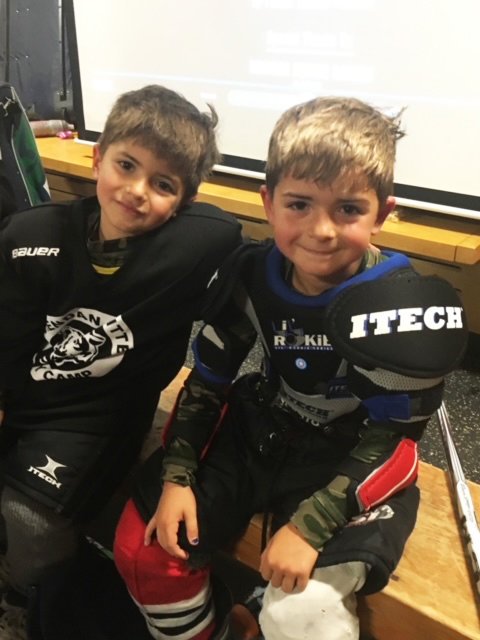Closing hockey rinks won’t help stop the spread of COVID
Youth hockey leagues have been vigilant on the rink – and off, according to hockey dad
PROVIDENCE – There has been increasing discussion of the spread of COVID in ice hockey rinks. The recent Washington Post article did a decent job in looking into the scientific reasons why indoor ice rinks have so much risk of transmission of all types of viruses. [See link below to story, “Why does COVID thrive in hockey rinks? Scientists are trying to solve the mystery.”]
In Rhode Island, we’re in the midst of another rink shutdown until Dec. 13. As a hockey dad, I have seen many cases since we started our season in September.
Every few days, we learn of another team in our league that has a 14-day quarantine. However, I haven’t seen any spread from those cases.
We have not seen any examples of multiple players on a team testing positive. I believe that there are many factors causing this.
Wearing a mask on the rink
First off, my sons are 9 and 11, and there is plenty of research that shows that kids that age may be receptors of the virus but not spreaders of it. This is most certainly represented by the hockey community. I can think of a dozen teams that my sons play against, as well as their own, where one player tested positive, yet the virus didn’t spread to anyone on the team or to parents of any player.
At the high-school level, you see far more spread among a team, which is consistent with research in showing community spread is greater among high school-aged kids.
Another reason why we’ve seen little spread is that mask acceptance is almost 100 percent on the rink. One of my son’s coaches tested positive and he coached a game during his most infectious period. He was fully masked. His assistant coaches were fully masked. All parents were fully masked. No one else was infected.
This is the standard for Rhode Island youth hockey, as well as the standard in neighboring states.
Off the rink
I do think the youth hockey community let it’s guard down earlier this year, much as many in the general population did, and there was probably quite a bit of transmission from hockey families gathering in the parking lots unmasked, and in restaurants and hotels unmasked.
However, while this may have been happening in October, it is most certainly not happening now.
Another example of limiting the spread is how effective the contact tracing is between teams within organizations. We find out there is a positive test among our team, and we get tested – even when asymptomatic.
Because of the state’s highly effective testing systems for children, almost all Rhode Island hockey families have been vigilant when notified of being a close contact with someone who is infected.
Travel restrictions
The last reason, unfortunately, is no longer occurring. Most of the youth hockey in Rhode Island is played against teams from Massachusetts. Because of Gov. Baker’s draconian travel restrictions, teams from Massachusetts won’t play games in Rhode Island.
In order for Rhode Island teams to play in Massachusetts, our kids and parents need to show a negative test result within three days of the game being played.
So we’re doing exactly what epidemiologists have been calling for – consistent testing among sub-population groups. Unfortunately, New England governors have ended intrastate youth hockey, so we no longer test.
It’s important to note that Rhode Island teams can’t play in Massachusetts, but Rhode Island players can play for teams in Massachusetts, as long as they vigilantly test.
I understand that our Governor is doing everything in her power to save our health care systems. As the son of a pediatrician, the grandson of a surgeon, the ex-neighbor of an ER doctor, and the friend of many who have been very sick with COVID-19, I desperately want to see us get control of this virus. But closing hockey rinks will do almost nothing to help accomplish that.






